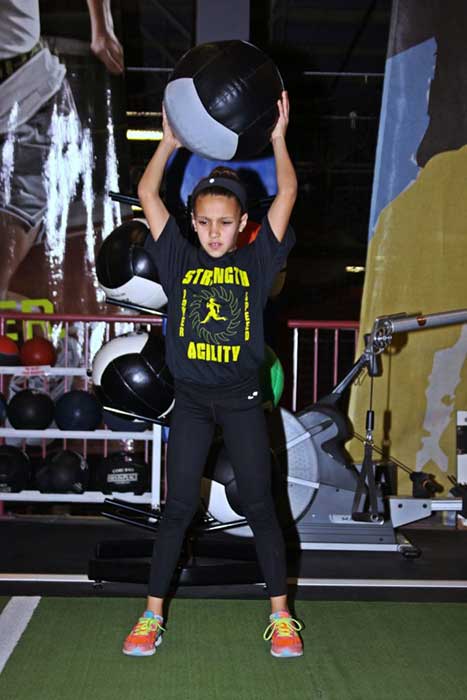Resistance training for youth: Is strength training beneficial and safe for kids?

This month, we’d like to take some time to address this commonly asked question here at Elite Sports Performance & Physical Therapy.
There’s a lot of uncertainty surrounding the idea of children participating in strength training programs. In the past, it was sometimes thought that strength or resistance training was not safe for children and that it may negatively affect children’s growth. However, more recent research has proven this to be false and both the International Sports Sciences Association and the American Academy of Pediatrics have supported the safety of resistance training for children.
Research conducted by various organizations has demonstrated that a strength training program can help increase strength, decrease the risk of injury while playing sports, and increase bone density in children. Youth strength training programs also have the potential to improve motor performance skills, enhance sports performance, and better prepare young athletes for the demands of practice and competition.
When it comes to youth strength training, the most prevalent concern is the child’s stage of physical development and the impact of training on certain parts of the body, such as the child’s growth plates. Given the importance of safety, there has been extensive research conducted to identify the most appropriate age for children to start strength training and how to do it in the most beneficial way possible. What the research has demonstrated is that the only significant risk is performing maximal lifts, lifts that are one repetition maximum lifts or 2-3 repetitions of a one-repetition maximum lift, before the child has reached a higher stage of developmental maturity. But, leading researchers in the field of youth fitness agree that a strength training program that doesn’t include maximal lifting is beneficial for prepubescent and pubescent youth.

Research has also demonstrated that strength training is particularly important for young girls, as females are at an increased risk for osteoporosis. Strength training can be especially beneficial when started prior to puberty as greater gains in bone mass can be made at this time. Females have also been shown to be at higher risk of certain injuries, such as ACL tears. Well-designed strength and conditioning programs have also been shown to reduce the risk of a non-contact ACL injury.
With younger children, it’s important to begin with bodyweight exercises accompanied by lightweight, high repetition strength training. This first process is key because it gradually introduces the body to the stresses of training, emphasizes proper technique and form, and builds a foundational strength base to build on. As the child gets older and reaches puberty, a more advanced strength training routine can be implemented.
A well-designed and properly supervised strength training program have also been shown to have a positive impact on sports performance and injury reduction, improve an athlete’s movement patterns, build confidence, and help every athlete reach his/her full potential. Here at Elite Sports Performance and Physical Therapy, we’ve seen this first hand in countless athletes who have trained with us. Over the years, we have worked with athletes of all ages and skill levels, from Little League to professional. Some have met their goal of making their local AAU team, while others have achieved their goal of becoming professional athletes. Regardless of age, skill level or aspirations, we strive to develop each athlete that comes through our door into the best they can be. With our professional and highly educated staff of trainers and physical therapists who hold B.S. degrees, M.S. degrees, doctorate degrees, and varying national accreditations, we’re committed to working with you or your child and helping you become the best you can be!
For more information on how to start with us, contact us here or call us at 781-297-0979.
Also, be sure to check out all of our previous Athlete’s of the Month on our website to learn more about how our athletes are improving and becoming their best!
Reference:
Hatfield, Disa. “Strength Training for Children: A Review of Research Literature.” www.ISSAonline.edu, ISSA, 1 June 2011, www.issaonline.edu/blog/index.cfm/2011/6/1/strength-training-for-children-a-review-of-research-literature.
